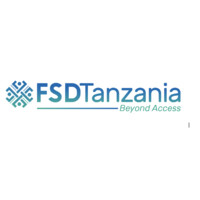Read Here information about the Terms Of Reference – Local Design Thinker at FSDT
About the Organization
Established in 2004, the Financial Sector Deepening Tanzania (FSDT) is a donor-funded financial sector market facilitator that aims to achieve poverty reduction through a transformative financial sector that offers inclusive and sustainable financial solutions to improve the livelihood, wellbeing, and empowerment of underserved Tanzanians. FSDT’s work is guided by the Market Systems Development (MSD) approach, which aims to develop market systems that benefit the poor, offering them capacities and opportunities to improve their lives.
Currently, FSDT’s main target markets are women and youth, who have been identified as the most financially excluded market segments in the country. FSDT is dedicated to supporting the financial sector in delivering inclusive, quality financial solutions that meet the financial needs of women and youth.
Through its catalytic function FSDT, hopes to achieve the following changes in the market:
• Improved policies, legal and regulatory frameworks that promote gender equality, as well as economic and financial opportunities for women and youth.
• Improved availability of relevant financial sector infrastructures that will equip the financial sector players and other stakeholders with the ability to meet the needs and aspirations of women and youth.
• Financial service providers (FSPs) developing and scaling innovative and responsive financial solutions/tools for women and youth to promote equality, empowerment, and wellbeing.
• Improved confidence and capability of women and youth to demand and use financial solutions.
Background of the Assignment
The “Ecosystem Analysis to Drive Financial Inclusion for Women and Youth in Tanzania” (FSDT February
2023) indicates the below supply side picture and clearly outlines the existing supply side challenges
for increased uptake and usage of formal financial services by women and youth.
A total of 37 programmes and products that target women and youth were identified, which were mainly designed by either Banks or MNOs. The study has also revealed that most of the Microfinance Institutions (MFIs) of tiers three and four do not have a particular product for women and youth. However, they have group loan products designed for both women and youth, which also address their collateral requirement shortcomings.
Of all 37 products and programmes, 19 or 51% are specifically for women, 13 or 35% are specifically for youth, and 5 or 14% are for women and youth.
Further, field data has revealed that 50% of interviewed FSPs have a particular strategy for women compared to 31% who indicated a plan for the youth market. Most of the women and youth strategies reported by banks perform well.
Some banks have gone further and established a desk for women’s markets. For example, the Tanzania Commercial Bank (TCB) has a special department that deals with women’s banking issues. Through this window, the bank has managed to recruit more than 1,200 individuals through their Tabasamu Group Account and has partnered with Vodacom Tanzania to use the M-Koba platform. The bank also established financial education, business meetings, and workshops that facilitate networking for women who deal with micro, small, medium, and large businesses. Another good example is CRDB bank, which has a specific department for women’s market and value proposition (Malkia Proposition), which has bundled products and services targeting women. ABSA bank has initiated the SHE initiative strategy and introduced individual desks for women to make inquiries, and they have gender champions within its branches. The SHE initiative strategy of ABSA Bank is currently leading in gender finance products in Tanzania.
Eventhough commercial banks report these specific value propositions for the women’s markets, most of these products are not well known by women across different social and economic distributions, especially in rural areas. Several factors contribute to this: product features, a targeted segment of the targeted market, eligibility requirements, and the distribution channel used. To drive inclusive finance and include the underserved, banks must relook at these products and apply innovative ways to scale up by collaborating with other partners working with women and youth, and apply below the line marketing strategies and tactics to reach women and youth markets.
Further, the study clearly outlines that there is a need to increase awareness among ecosystem players (i.e., regulators, boards, and investors) on the value and importance of gender-disaggregated data and build both soft skills and systems to capture and use gender-disaggregated data.
So far, several market constraints have been identified:
• FSPs lack the data or market research to identify opportunities, especially for marginalized groups including women and youth;
• FSPs have insufficient understanding of financial needs of clients, especially marginalized groups including women and youth;
• FSP data systems and current reporting structures do not generate sex and age disaggregated data;
• FSPs lack the capacity to develop insight driven solutions, especially for marginalised groups and women and youth.
These market constraints also cut across to the policymakers and regulators that are yet to embrace pro-active evidence driven regulation and policy design.
About FinClinic
Summary of the FSDT Innovation Journey
In the past, FSDT has tested various pathways to innovation, which include:
• SME Challenge Fund; a fund that awarded financial support (grants) to SMEs based on a competitive application process. However, the fund assumed that FSPs will be in a position to support SMEs or critically evaluate them on the basis of relevant problem identification, ideation / concept development and in the process of business model development / prototyping. This assumption required FSPs to have sufficient understanding of low-income / SME clients and to have the capacity to develop ideas and business models. One of the key lessons from this intervention was it appeared to be that ‘FSPs on their own don’t know how to innovate’. This may explain the generally low quality of applications noted by reviewers of Challenge Funds that require applicants to come with ‘ready-made solutions’.
• Following the challenges observed in the SME Challenge fund, FSDT developed an alternative approach towards fostering innovation in the market, FinDisrupt. FinDisrupt was an ambitious, financial sector initiative that seeks to leverage end-user evidence and insights to start conversations on how the financial service providers and policy makers can develop innovative solutions that meet appropriate needs of their users. Though it was successful in supporting various financial sector players, it still demonstrated weaknesses in terms of actual success in go-to-market; as the support did not prototype and strengthen the business models, and niether provided any pilot or go-to-market strategy development support.
• Hence, FSDT iterated its approach once more, and implemented in its last strategic period intervention known as FinSights Lab. FinSights Lab was an information and solution ‘One-stop Shop” in the Tanzanian financial sector through which FSDT sought to provide an interactive go to place (physical and virtual), where financial stakeholders can investigate and test solutions. FinSights Lab brought the best of methodologies, research and financial sector
experts together in trying to resolve the issues brought forward by the stakeholders. The platform and its research designs were focused on driving real solutions in the market, which create value for the consumer. In the previous FSDT evaluation performed by SIDA, it became evident that the FinSights Lab intervention spurred significant results in improving the usage and application of evidence/insights (FinScope and its follow-up researches) in the development and design of products/policies/regulations/strategies.
Learning from the evolution outlined above, FSDT has now developed an Insights to Solution Innovation platfrom, FinClinic, which builds on the strengths and successes of its predecessors.
Interested in the Terms Of Reference – Local Design Thinker at FSDT ?
TAP / CLICK HERE TO READ THE FULL DETAILS OF THIS TORs
See also: Terms of Reference at Solidaridad





